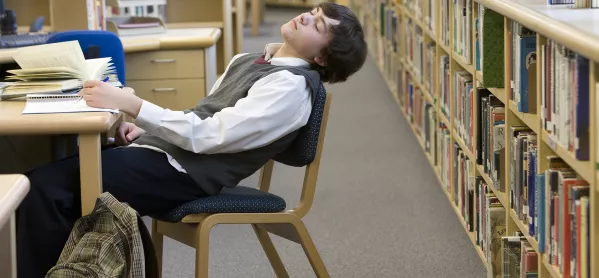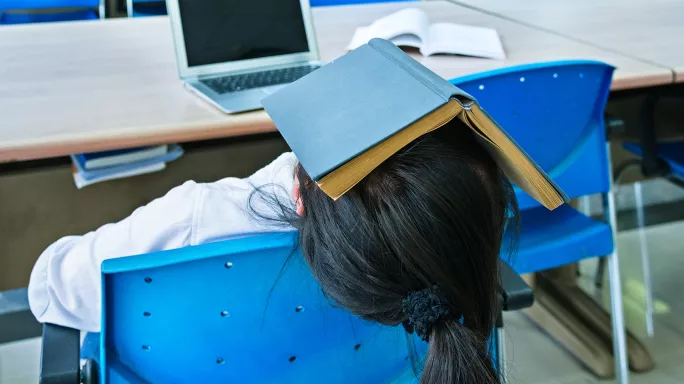Who needs sleep? Just try asking anyone who’s ever been deprived of it. Parents of newborns will be familiar with the mood swings, feelings of sickness and confusion.
But that’s an extreme example of sleeplessness.
So how important is sleep in general? And how necessary is it for learning?
Quick read: GCSEs: how to make the learning stick
Quick listen: GCSE revision: a guide to what works best
Want to know more? How to help girls overcome exam anxiety
Are we better off pulling an all-nighter and revising into the small hours? Or would we be better off just giving up and going to bed? The answer is, literally, that you should sleep on it.
We all know that sleep is good for us. We’ve all probably advised our students to make sure that they get enough sleep. I’ve certainly told classes not to stay up the night before an exam, and emphasised that they’d be better off getting a good night’s sleep instead, but this has been based on experience and instinct.
GCSEs and A levels
But research has confirmed that sleep doesn’t just help you to learn more effectively, it will also help you remember what you’ve learned for longer.
When we sleep, we consolidate what we’ve learned, making links between novel and familiar ideas, or connecting ideas that are already familiar. These networks of ideas help us to retain, recall and apply the ideas that we learn.
These schemas are what makes us learn about the world, rather than just collecting lists of unrelated facts.
The research mentioned above looks at how we can combine the principle of “practice makes perfect” with our understanding that sleep helps us to build schemas.
Interleaving
Researchers examined how the interleaving of sleep and practice sessions impacts on both initial learning and long-term retention, and how these practice sessions should be spaced out.
What really struck me from reading this paper was that, even with the same length of time between study sessions, learning was much improved if participants had slept in the intervening period.
So a 9pm study session repeated at 9am the next day is more effective than a 9am study period repeated at 9pm the same day. Sleeping aids learning, as you might expect, but it’s especially helpful if it comes after learning and before restudy.
What was perhaps less expected was that this boost in retention is still present a week later and, in fact, by combining spaced retrieval practice with sleep, participants remembered more than those who didn’t follow this study schedule, even six months later.
GCSEs: Exam dates Find the key dates and exam timetables for the 2019 GCSEs
GCSEs: Results Find all the key dates and information for the 2019 GCSE results day
A-level: Exam dates When are the 2019 A-levels? Find exam board information, timetables and dates
A-level: Results Find the dates and information for the 2019 A-levels results day
Repeat to retain
As every parent and teacher has always suspected, a good night’s sleep will help you remember more of what you’ve learned, make it easier to relearn things you’ve forgotten, and then to retain that information for much longer, especially if you review it repeatedly, with sleep in between sessions.
So when you tell your students to space out their study (rather than leaving it all until the last minute) and to review their learning regularly throughout the year, you’re not just being annoying for the sake of it. In fact, your nagging is now research-based.
Dr Niki Kaiser is network research lead at the Norwich Research School at Notre Dame High School






